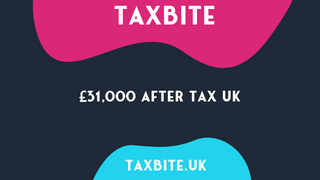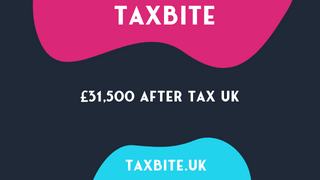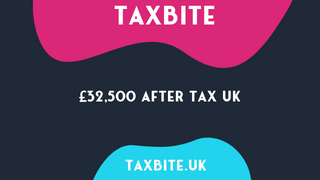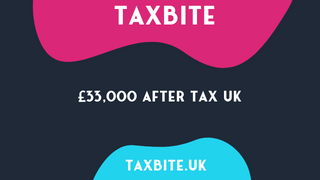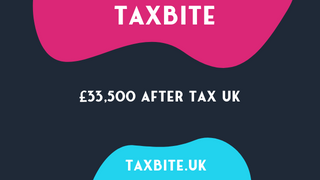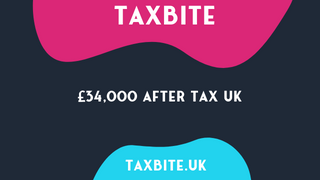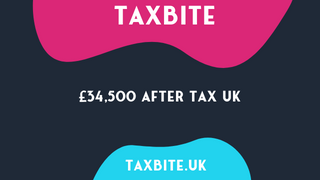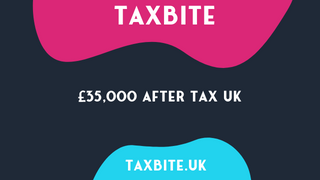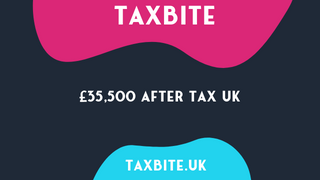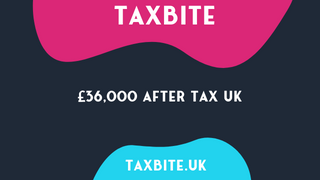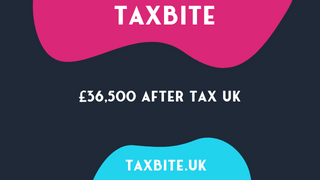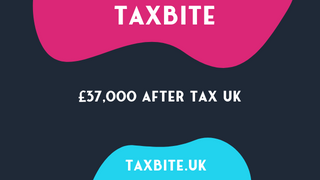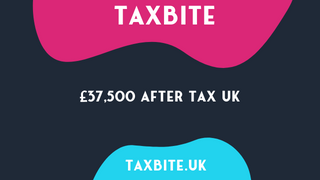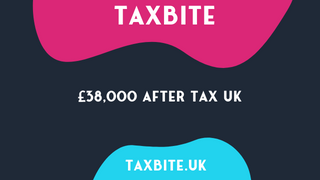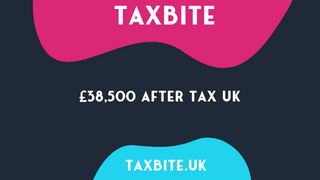Understanding the amount of money one receives after taxes is important for effective financial planning. In this section, we will explore after-tax income in 2021, including its definition and significance. We will also examine the latest rates for income tax and national insurance to provide an overview of how earnings are taxed. Let us delve into the topic and gain a clear understanding of our take-home pay.
After-tax income is the money left after subtracting income tax and National Insurance contributions. It’s an important part of personal finance planning because it helps avoid overspending. This can lead to financial instability.
To calculate after-tax income, simply deduct taxes and National Insurance from the gross pay. Tax rates change annually, depending on one’s tax band. National Insurance contributions also depend on weekly earnings. It’s vital to calculate after-tax income to know real earnings and budget accordingly.
When calculating net pay, personal tax-free allowances also matter. The amount of taxes deducted varies with gross pay and any applicable allowances. Online platforms and newsletters, like the Money Newsletter, can help keep track of taxation changes for better financial planning.
Income tax and national insurance are two important parts of take-home pay in the UK. Employers must deduct these from their employees’ gross pay. Tax is based on taxable income. National insurance is a contribution to the welfare system. It’s important to consider both deductions when calculating net pay.
Factors such as personal allowance, rates, age, and earnings influence deductions. It can be tricky to keep up with the changes. A financial expert can help with this. Knowing about income tax and national insurance can lead to better money decisions. Being informed reduces risks and uncertainty. Staying updated with HMRC changes is essential.
With a gross income of £38,000, calculating your net pay may seem like a daunting task, but it doesn’t have to be. In this section, we will break down the components that make up your net pay, including tax and National Insurance deductions. We will also explore how your personal tax-free allowance and income tax bands play a role in determining your net pay.
Based on the current tax year, your personal tax-free allowance is £12,570. Any earnings above this amount will be subject to income tax. The basic rate of income tax is 20%, which applies to earnings between £12,570 and £50,270. After this, the higher rate of income tax (40%) applies to earnings between £50,271 and £150,000.
In addition to income tax, you’ll also need to pay National Insurance contributions. For the 2021-22 tax year, the primary threshold for National Insurance contributions is £184 per week, which is equivalent to £9,568 per year. The rate of National Insurance contributions is 12% of your earnings between £9,568 and £50,270, and 2% on earnings above this amount.
Using these figures, we can calculate your net pay for a gross income of £38,000. After deducting your personal tax-free allowance of £12,570, your taxable income is £25,430. You will owe £5,086 in income tax (£25,430 x 20%) and £2,773 in National Insurance contributions. Therefore, your net pay will be £30,141 (£38,000 – £5,086 – £2,773).
By the end of this section, you should have a clear understanding of how to calculate your net pay and the various factors that affect it.
Income tax and National Insurance are key factors that determine an individual’s net pay. These deductions must be made to calculate the correct amount of pay.
Calculating these can be tricky. Income tax is based on tax-free allowance and different income tax bands. National Insurance is based on earnings above a certain limit.
To work out the net pay for £38,000 gross income, you need to know the personal tax-free allowance and tax bands for the current year. This helps you figure out how much you can earn before paying tax.
Some people may be eligible for exemptions or allowances, like marriage allowance or blind person’s allowance. Taxable incomes can also be reduced through student loan deductions and pension contributions.
To get fair compensation, employees need to understand different financial components like income tax bands, national insurance payments, pensions contributions and student loan deductions.
Comprehending Personal Tax-Free Allowance and Income Tax Bands is key when calculating post-tax money.
The personal allowance is the sum an individual can gain before they have to pay income tax. For 2023 tax year, the regular personal allowance is £12,570.
Constructing a table using
,
tags can assist you in understanding the tax bands and rates for 2023-24. The table below displays income tax rates, personal allowances, and national insurance contributions (NICs) based on different earnings:
| ,
|
| Annual Income | Personal Allowance | Basic Rate: 20% | Higher Rate: 40% | Additional Rate: 45% |
|---|---|---|---|---|
| Up to £12,570 | £12,570 | 0% | 0% | 0% |
| £12,571 – £50,270 | £12,570 | 20% | 40% | 0% |
| £50,271 – £150,000 | £0 | 40% | 40% | 0% |
| Over £150,000 | £0 | 45% | 45% |
Note that National Insurance is calculated differently from Income Tax and has its own set of allowances.
If someone has taxable income that exceeds the basic rate band but does not exceed the higher rate threshold (£50,270 for tax year 2023), they will pay basic rate on their taxable income with a personal allowance of only £1 for every £2 of adjusted net income over this limit.
Maximizing Pension Contributions or doing Salary Sacrifice agreements can reduce taxable salary and boost take-home pay as it lowers adjusted net income assisting people remain within their Income Tax thresholds whilst saving up for retirement.
At ABC Financial Services, we had a client whose wage is £37,000. After using the tax calculator for 2023, we recommended him to maximize his pension contribution to receive better tax rewards while planning a financially secure future. The client was surprised to have an additional £1,470 of yearly disposable income after following our advice.
Tax can be a complex subject, but don’t worry! In this section, we will discuss how to use tax calculators for accurate comparisons and planning. Furthermore, we will provide valuable financial advice that is available to you free of charge through the Money Newsletter.
Stay proactive and plan your finances for 2023, where an annual income of £38,000 after tax is possible.
Understand net pay? Use tax calculators! They help you compare scenarios by changing income, student loans, and pensions. Here’s the 4-step guide:
Tax calculators are essential for accurate assessments. They help you reduce taxable income or increase deductions for better financial planning. You can track progress towards long-term goals by using tax calculators frequently.
Taxes may change year-on-year. That’s why experts suggest regularly reviewing obligations owed from a prior academic year. Sacrificing salary and getting maximum pension support can benefit you in both retirements and potential life cover benefits.
Take advantage of tools like this and have better control over managing finances. Increase financial stability by optimizing net pay with personal spending patterns. This paves the way for a secure future.
Money Newsletter provides free tips and advice to help individuals make smart money decisions. It covers topics like after-tax income, tax and national insurance, net pay calculations, student loan repayments, and pension contributions.
Tax calculators are a key part of Money Newsletter. They let subscribers compare different scenarios to see how life changes could affect them financially. They can enter their earnings and other details to use these 2021 calculators.
The newsletter also has comprehensive coverage of pension contributions. Subscribers can get information on how to maximize their pension contributions for higher returns, as well as how to reduce taxable income by using salary sacrifice options.
Money Newsletter helps people achieve their financial goals. It provides sound financial advice and a range of tools. Sign up now to get free expert tips on finances.
Looking to increase your take-home pay while also paying off student loans and saving for retirement? This section will explore two powerful strategies for boosting your financial flexibility:
Repaying student loans can be done through salary sacrifice or other methods. It involves reducing your pay each month to pay off the loan faster, saving you money on interest.
Other options include direct debit payments, online portals, tax deductions, and minimum payment thresholds. You can also prepay extra principal, with great benefits if you have the funds.
Salary sacrifice may not be suitable for everyone. Those relying on overtime and bonuses may find it impractical.
It’s important to consider the pros and cons of reducing gross pay compared to bonus/overtime earnings’ contribution. You should also think about maximizing your pension contributions to secure your financial future and get tax benefits.
In short, repaying student loans through salary sacrifice or other means can make financial sense depending on your situation.
Maximizing pension contributions for tax benefits is an excellent way to get the most out of your income. This involves putting a larger percentage of your earnings into a scheme. This reduces taxable pay and gives other financial advantages.
To get the most out of your contributions, here are some things to consider:
For employers, offering a workplace pension scheme is great! It boosts morale and reduces absenteeism. It’s also beneficial to the employer and employee.
It’s important to note that while these points are helpful, you should always seek professional advice to review your finances. Making immediate tax savings isn’t always a good idea. Adjusting student loan payments or lowering your taxable salary below the auto-enrolment minimum threshold could have serious long-term implications. Such as foreclosure on mortgage opportunities or reduced payouts when retirement arrives.
It’s key to understand after-tax income and plan for the future. In 2021, someone earning £38,000 gross income and £31,920 after tax and NI can have a good lifestyle if they plan correctly.
Comprehending deductions like NI and income tax is important to work out your net salary right. You can then manage your expenses and save for the future. It’s also wise to think about long-term investments, like pension schemes, for financial security.
Furthermore, it’s critical to assess financial plans often. This is to keep up with inflation rates and changes in the cost of living. So you can change your budget and stay financially stable in the long run.
To summarize, understanding after-tax income and planning for the future is critical for financial stability. Knowing deductions, reviewing financial plans, and investing in the right schemes, individuals can reach their financial goals and lead a comfortable life.
For a salary of £38,000 per year in the UK, the gross income is £38,000, the net pay is £29,188 per year, or £2,432 net monthly salary. The tax amount is £5,086, resulting in an average tax rate of 22.3%, and a marginal tax rate of 33.3%. The marginal tax rate means that any additional income will be taxed at this rate.
A £1,000 bonus will generate an extra £668 of net income, and a £5,000 bonus will generate an extra £3,338 of net income for a salary of £38,000 per year in the UK.
For a salary of £38,000 per year in the UK, the breakdown of the yearly, monthly, weekly, and daily income (assuming the individual is younger than 65, unmarried, and has no pension deductions, childcare vouchers, or student loan payments) is as follows:
Here’s a list of similar salaries:


